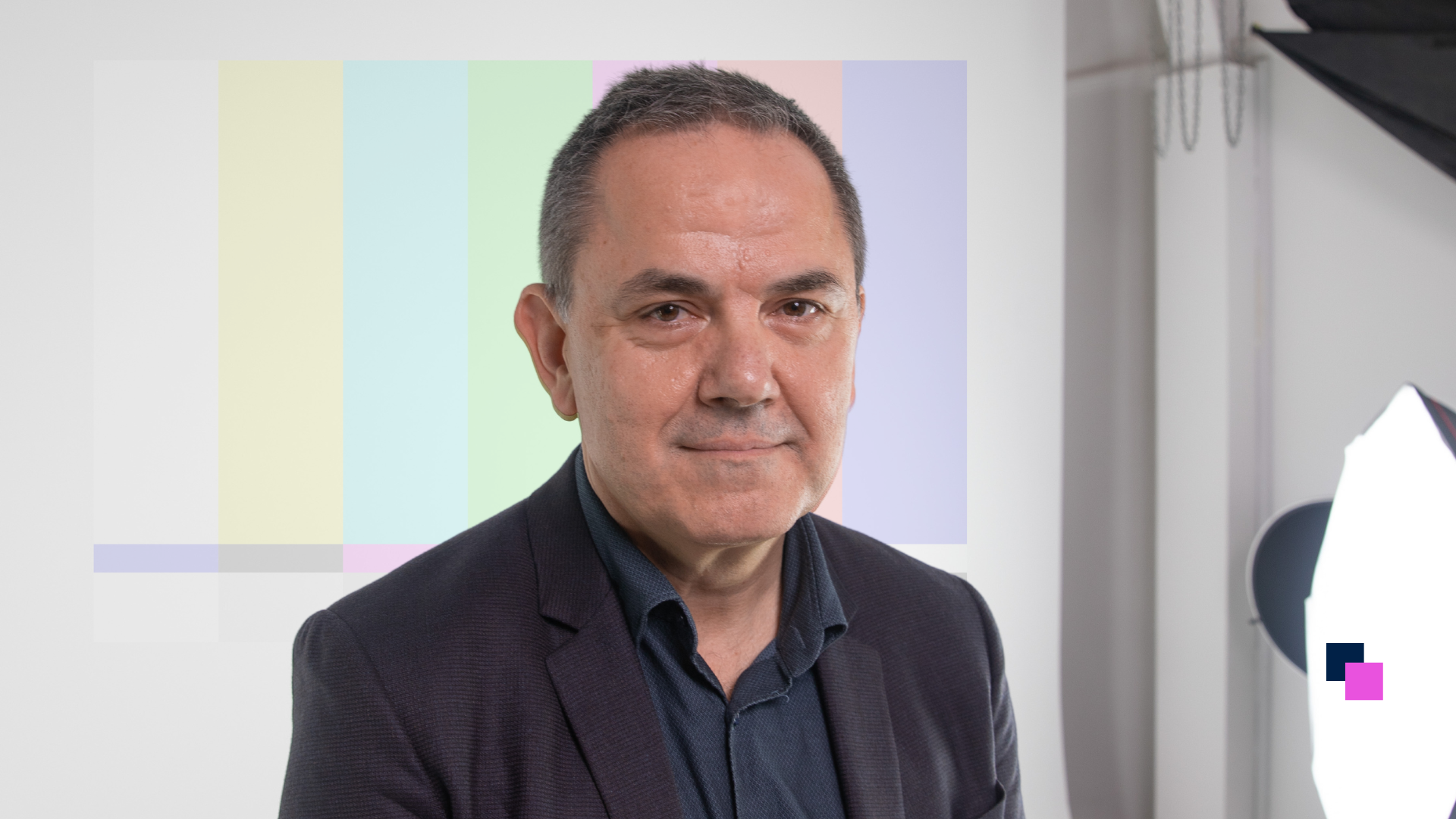Embedding philosophy in the ethics of AI.

It is not so much a far-flung future that worries this philosopher about Artificial Intelligence.
Although, Professor John Tasioulas has real fears about the potential impact of AI on weapons and warfare.
But he has immediate and deep-seated concerns about the damage AI threatens to the dignity of the individual - and the implications for a democratic society.
Many have found AI’s language applications an entertaining device through which they can send a Shakespearean-style letter to their partner or ‘write’ a book in an instant.
But Professor Tasioulas, an expert in ethics and legal philosophy, is urgent in his fears about the significant potential impacts of the widespread adoption of AI on justice, international relations, democracy – and even human rights.
‘What characterises [AI] is that it is able to perform many functions that normally require human intelligence, so that forces us to think about what's distinctive about human beings, what's distinctively valuable about them.’
As he talks through a few of the likely impacts, it sounds a worrying and unhappy future: more redolent of HG Wells’ Time Machine, than a shoot-em-up sci-fi film.
There are so many potential concerns, a philosopher is an essential guide to the implications.
‘There is a sense in which AI is creating a moment for philosophy,’ says Professor Tasioulas, who clearly takes no pleasure in the sudden high-profile. ‘It is forcing us to reflect.’
He explains, ‘[AI] bears on a quintessentially philosophical problem – what it is to be human and live a good human life.’
‘But AI gives it a kind of real practical urgency because we need to figure out how to integrate into our lives in a way that enhances our ability to deploy our capabilities, rather than diminishes us as human beings.’
As Director of Oxford’s Institute for Ethics in AI, Professor Tasioulas is set on making clear these fundamental implications.
He says, ‘The key thing we have to guard against is tech corporations using the fact that they have a lot of technical expertise to drive the development of technology, because a lot of what's at issue here is not about technical expertise. It's about making value judgments.’
He adds, ‘It's incumbent upon those corporations, upon universities, upon governments to inform the general public about the facts of the matter in terms of the technical issues, but then to enable those publics, once informed, to make the moral judgments that are necessary about what kind of AI will be developed, how it should be deployed.’
‘It should enhance rather than diminish humanity. What about human rights, democracy and human dignity?
He continues, ‘What are the advantages of AI? We may make efficiency gains, it may be cheaper and faster.’
‘There are some genuine issues around the tech, and it can assist scientific research [which will benefit humankind].’
But what are the implications?’
Much of the focus of the debate around AI has been on the impact on jobs, he says. But less visible, are the threats to what it means to be a member of society. A lot of questions arise. In no particular order:
What happens if AI is used to dispense justice?
Should it replace a judge or magistrate?
It may know the case law, but will it know if a witness is lying?
How would it explain its judgement?
Should cost-cutting come before the right of people to be tried by their peers?
What does it say about the idea of technology having authority over people?
Is that a future we want?
What do the people do who do not have jobs?
Will they play games?
What will be the impact on personal dignity of not having employment, even if they are given a ‘wage’?
Will they feel themselves to be members of society?
A world in which work is scarce and where many will not be employed because of AI, has a range of philosophical impacts.
He adds, ‘We need to ask, what is work giving us? Over and above being a source of income, does it have intrinsic value? If you deprive people of work, what will happen to their self-respect and their sense of being part of society?’
‘AI could do dangerous jobs, jobs which are not meaningful – that would be a benefit.’
‘But it is really important to consider who makes the decisions,’ says Professor Tasioulas.
‘And we need to think about different domains, not just employment – especially with people at the sharp end, such as offenders. There are implications for the quality of our democracy.’
He insists, ‘The most important thing is, as with any major development, who gets to make the decisions and for whose benefit. So… what we really need is strong democratic oversight over how AI is designed and how it's deployed.’
Professor Tasioulas also has concerns with the impact of AI on politics and the implications for confidence in the system.
‘A big theme is the impact on democracy,’ he says. ‘Can we use AI to facilitate democracy [or will it undermine democracy]?’
Professor Tasioulas explains, ‘There are some interesting experiments in widening democracy going on Taiwan [using online mass communications]. We could learn from them.’
‘We're also looking at ways in which it might enhance democracy, enable a more informed and participatory citizenry engaged in questions of public policy, including around AI.’
He sees worrying attacks on democratic principles, in the shape of ‘populism’ and attacks on electoral outcomes from technocrats.
Such attitudes can be magnified through online and AI-driven content, but he says, ‘They are both anti-democratic.’
Democracy needs to be protected, ‘People need to be informed, so that after deliberation, they can push back about the power being taken away, if they think that is a problem.’
Professor Tasioulas adds, ‘If I had unlimited funding, what I would do would be to channel that into improving digital literacy amongst the population and facilitating a more informed and engaged public on these sorts of issues.’
Professor Tasioulas delivered the 2023 Elson Ethics Lecture at St George’s House
Professor Tasioulas is clear that such issues must be addressed, to prevent worse, ‘The consequences can be terrible if people have a sense of helplessness in the face of the technology, or if they feel humiliated.’
He adds, ‘Historically, we know that social justice doesn't tend to come from elites. It tends to come from empowered social movements of ordinary citizens.’
As a philosopher, Professor Tasioulas tries to consider all angles.
He is unhappy at the idea of being seen as a remote ‘expert’ dispensing wisdom. ‘It’s really not the type of image the Institute wants to project,’ he says, ‘We need the project to be inclusive.’
He is not just publicity shy, though, Professor Tasioulas is urgent in saying everyone needs to be asking questions right now, rather than ‘sleepwalking’ into the erosion of society.
‘People need to be able to make choices – rather than having decisions imposed on them by elites.’
It is clear, this goes to the heart of his philosophical approach.
When he was a boy growing up in Australia, the young John was conscious of his southern European background.
His parents moved there from Greece before he was born and neither had progressed even to secondary school. He was the first in his family to do so.
But, he insists, his interest in ideas and discussion very much stemmed from his father’s influence.
‘I owe so much to my father,’ he says quietly.
When he was a child, they would always be talking about questions such as what it means to live a good life, recalls Professor Tasioulas, although he did not realise at the time that they were philosophical questions.
It was only in later years that the professor realised these debates had laid the foundations for his future path.
The young Australian actually became interested in philosophy as a way of valuing his Greek heritage.
As a teenager, he started looking at Aristotle and Plato. He found it fascinating.
But, he maintains, those early formative conversations at home with his father, had embedded his interest in questions and ideas – and has had a long-lasting impact on his philosophical approach.
Professor Tasioulas is keen to emphasise the limitations of following a particular model or ‘ism’.
He is especially critical of the utilitarianism that is the dominant outlook in the AI community, which he describes as ‘crude’, since it focuses on preference-satisfaction, rather than taking account of ideas such as human dignity.
He says, ‘I think what our engagement with AI shows is that even people who haven't heard about philosophy are making a series of philosophical assumptions, and often the easiest assumption to make if you're in the field would be to adopt utilitarianism, because utilitarianism basically says ethics is a data driven exercise.’
‘Figure out people's preferences and then optimise for the fulfilment of their preferences. That's certainly a view within philosophy, but a highly controversial one.’
‘We discussed so many things all the time,’ he recalls of those early philosophical debates. ‘They were conversations, using reason, rather than related to a particular philosophical theory.’
Intrigued to ask further questions, he opted to take a degree in Philosophy and a degree in Law at the University of Melbourne… at the same time.
Then he won a prestigious Rhodes scholarship to come to Oxford in 1989. He says, it meant a great deal to his father and his mother.
He took a doctorate at Balliol College and lectured in law at the University of Glasgow. But he came back to Oxford in 1998 as a fellow and tutor in legal philosophy and philosophy.

Balliol College, Oxford
Balliol College, Oxford
Poached by University College London in 2011, he then went to King’s College, London, before coming back to Oxford in 2020, as the director of the Institute.
According to Professor Tasioulas, ‘In its essence, [Oxford is] an interdisciplinary place. For example, you constantly meet colleagues in other disciplines in the colleges.’
‘Another feature of it is that philosophy is very much a central discipline here. And the way that we're approaching ethics, with a strong foundation in philosophy and a serious effort to engage with other disciplines.’
As for the future, he does not like to make predictions, but says Professor Tasioulas, ‘Two really important choices are going to be whether we're able to come to some kind of accommodation with societies that are not liberal democracies like China to put in place some global, minimal safeguards to prevent the worst kind of horrors emerging.’
Professor Tasioulas talks about what the future holds for AI
‘And I think the second kind of choice is whether we carry on allowing large corporations to make the running in this area or whether instead we find some way to exert greater democratic control. I think that's what's going to determine the future.’
More #OxfordAI experts


